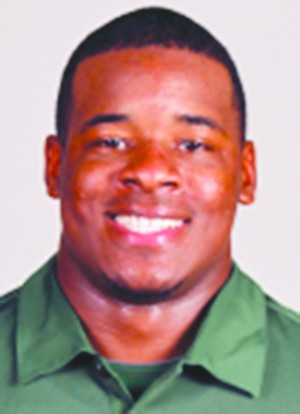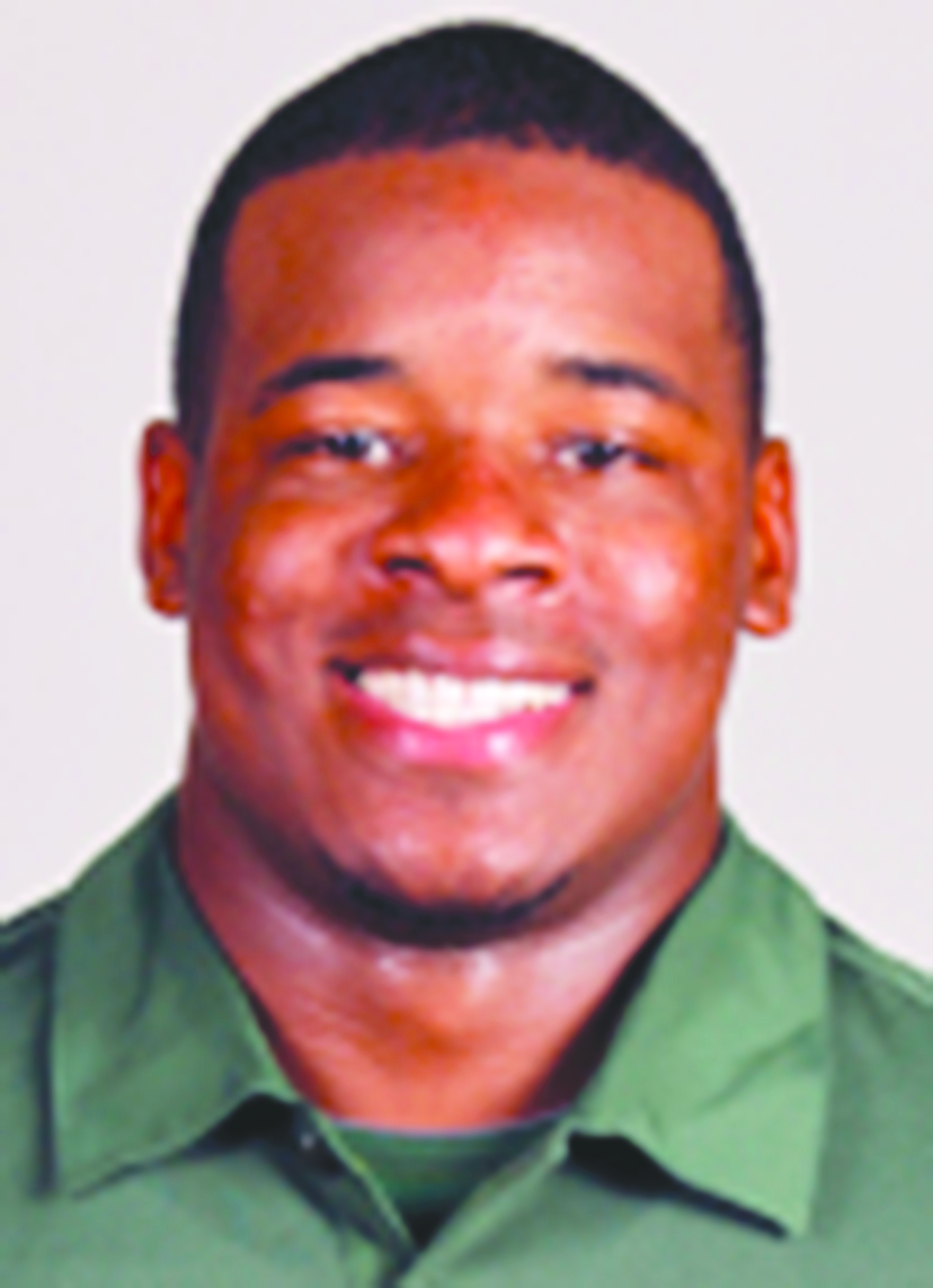
By Paula Ann Solis
Staff Writer
Former Baylor football player Tevin Sherard Elliott, 22, is seeking a retrial after receiving a 20-year conviction on Jan. 23 for two counts of sexual assault.
William A. Bratton III, the defendant’s new Dallas-based attorney said in his motion for the retrial that Elliott’s former attorney, Jason P. Darling, inadequately represented his client.
Judge Matt Johnson of Waco’s 54th State District Court oversaw the original trial and will consider the validity of this claim at 1:30 p.m. Friday.
Elliott attended Baylor in 2009 and joined the football team as a defensive end in 2010. He left Baylor after allegations of sexual assault April 15, 2012, at a party in the Aspen Heights Apartments complex on South Third Street. Three other women came forward after the charges were made and two of them testified Elliott assaulted them as well.
Bratton said in his motion for a retrial that Darling represented Elliott improperly during his January trial by failing to prepare Elliott for his time on the stand.
According to the motion, Darling met with Elliott once when his family retained his services in 2012 and again two weeks before the trial date.
“The decision to call the Defendant was made known to the Defendant the day of his testimony and he received no preparation for his testimony from Mr. Darling,” the motion read.
Darling said he believes Elliott did receive a fair trial and it will ultimately be up to Johnson to decide who is right.
Aside from the lack of proper planning for Elliott’s testimony, Bratton also said in his motion Darling did not call, interview or subpoena witnesses from the night of the party who would have been essential to the case.
“It is believed that each of the individuals would testify that [victim] and the Defendant were dancing suggestively and that [victim] was kissing on the Defendant at the party,” Bratton said in his motion.
The motion also mentions Darling’s inability to properly address discrepancies in the victim’s report from the night of her attack and in her testimony.
Bratton plans to bring into question why two pieces of evidence were not used in the trial that could have cleared his client, according to the motion.
A surveillance recording from the apartment complex showed Elliott leaving the party at 2:02 a.m. alone. A 30-minute segment of the video, 1:08 a.m. to 1:38 a.m., is missing and followed by a 30-minute segment that shows Elliott and the victim entering the pool area together where one assault took place, Bratton said in his motion. This would contradict to the victim’s trial statement, he said.
“None of the issues regarding surveillance videos were raised by Mr. Darling on behalf of Tevin Elliott,” Bratton’s motion read.
The second piece of evidence Bratton said should be reconsidered in a future trial is an audio and video recording Elliott inadvertently made during the time the attack is said to have taken place. Elliott sent the recording to a family member who kept it on a memory card. The recording was introduced during Elliott’s testimony but proper steps to ensure its authenticity were not taken in advance by Darling, according to the motion. The family member who received the file was also never called to the stand as a foundation witness.
Elliott’s father, James Rockwell, said during the trial he knew Darling was not representing his son to his fullest abilities and began searching for alternative counsel while the case was in progress.
“I asked him to dismiss himself and he said the judge wouldn’t allow him to do that,” Rockwell told the Lariat on Monday. “He refused to remove himself.”
Rockwell said his son is doing the only thing he can, which is remaining hopeful he will receive a fair trial. Rockwell said his family felt unfairly treated in the courtroom when Johnson warned them they would be held in contempt if they cried out when Elliott’s verdict was read but allowed the victims to give what he called taunting final statements.
When the trial ended and one victim gave a final message that she was sorry the sentence would be 20 years and she hoped he would be released early for good behavior, Rockwell said the remorse in her message should have generated concern that her prior testimony claiming he raped her was erroneous.






